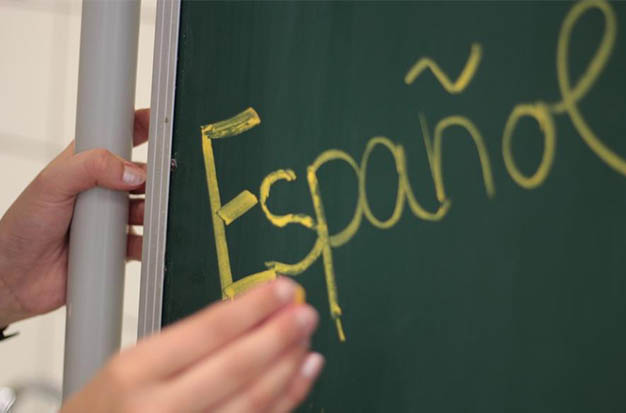Helping your child learn Spanish can be challenging if you don’t speak the language yourself! Perhaps you are concerned that your bilingual children will forget all of their Spanish during the summer. You might also be one of the 99 percent of people who have never moved to another nation but secretly wish you were bilingual. However, you secretly hope you could endow your children with the gift of bilingualism.
Even if you are unable to relocate to Spain or Mexico, this article will explain the advantages of teaching children Spanish and provide some advice for teaching your child the language and creating a Spanish-speaking atmosphere in your household.
Table of Contents
Benefits Of Teaching Your Child Spanish
Outreach, Ministry, And Work
Your children will probably discover many chances for bilingual speakers if you reside in a region with a large Spanish-speaking population. Bilingual speakers will be necessary for local employment and missions to successfully serve their community. You’ll probably come across people as you go about your days who would be glad to hear a word of encouragement in their native language.
Standards Set By The State And Excellence
For high school graduation in many places, you need to have credits in a foreign language. In addition, a lot of institutions require new students to have credits in a foreign language. Aside from meeting state and college requirements, learning a foreign language can aid pupils in understanding the syntax, vocabulary, and usage of their own language.
Learning A Different Culture
Learning a language also involves learning about other cultures and individuals. The study of foreign languages, conversations with locals, and engaging in Spanish-language activities all expose kids to many cultures and viewpoints.

How to Support Your Child’s Spanish Learning
The greatest way to help your child learn Spanish is to be proactive in supporting their studies, especially if you don’t speak it fluently yourself. Teaching them, pursuing pen pals or practice partners with persistence, and finding ways to apply and reinforce language learning outside of the classroom through apps, books, and other activities are all possible ways to do this. See more about How Long Does It Take To Learn Dutch?
Eight Tips For Teaching Spanish To Kids
Being proactive in helping your child’s academics is the best method to teach them Spanish, especially if you don’t speak it well yourself. There are several methods to achieve this, including teaching them, persistently seeking out pen pals or practice partners, and looking for ways to apply and reinforce language skills acquired outside of the classroom through apps, books, and other activities.
Create Reasonable Expectations.
Your Spanish classes and practice will be different if your goal is to give your children an experience or just satisfy a learning need than if your goal is to improve their communication and fluency. It’s acceptable to set high standards for your language study, and it’s also acceptable if communication and fluency aren’t immediate priorities for your family. If you implement all of these suggestions for a full year, your children can make significant linguistic gains; however, if you can’t, they can still make progress over a longer period of time.
Study Alongside Them.
When teaching Spanish to children, a proficient teacher is helpful but not necessary; instead, a commitment to learning with your children is unquestionably necessary. You can only help your children on this trip if you have also put in the effort. Your children will learn Spanish more effectively if you study with them because you can practice together.
Encourage Language Learning At A Young Age.
The earlier you introduce a new language to your children, the sooner you’ll be able to predict how much interest they’ll have in it in the future. Additionally, your youngster will have more time to pick up the language. See more about How Hard Is It To Learn Romanian?
Don’t Give Up On Fluency Just Because Your Kids Are Older.
It’s true that young children (4 years old and younger) naturally acquire language if they are immersed in it, but don’t believe the myth that older children can’t learn a language fluently. Adults, teenagers, and older kids are all more capable, intentional learners who can spot patterns and similarities more quickly. For language learners, these abilities will be essential. In the same amount of time, it takes very young children to learn their first language, an older youngster who is capable of doing these activities can learn more of a new language.
Practice, Practice, Practice.
As long as you practice and use the language consistently, you will retain it. This does not entail poring over vocabulary word flashcards for hours on end. It entails making use of what your children have learned thus far whenever you can. You might begin to substitute Spanish words for English equivalents for everyday goods. You may practice introducing yourself and asking someone how they are with them. Your children may conduct brief exchanges with one another or write about their days in Spanish. The vocabulary and grammar they need to speak effectively will grow as they do, and so will their ability to converse and write.
Find Authentic Experiences.
Finding methods to use the language in real-life situations offers many opportunities for language acquisition. Look for Spanish that has been written by or is intended for native speakers. The Spanish you learn in Spanish textbooks or other literature or media aimed at language learners is frequently constrained and formulaic. It doesn’t correspond to how a native or proficient speaker would speak. Look for writings by and for native or proficient speakers in books, songs, commercials, Bible verses, TV shows, and conversations. These will help your children become more natural speakers. They’ll be able to pick up on pronunciation, intonation, pacing, vocabulary, and structure that may be difficult to explain in a textbook.
Find A Companion.
Once your children are able to initiate and carry on sophisticated conversations, having a fluent teacher is beneficial. They will require someone who can direct them and reprimand them so they can learn outside of class as well as during it. This is the ideal moment to establish connections with native or proficient speakers who are close to you—in your community, at church, or even in an outreach ministry.

Make Language Learning A Part Of Your Life.
Make it an everyday occurrence. It will be simpler for you and your child to continue learning and improving as well as to begin practicing with native speakers once you meet them if you can standardize your Spanish practice and that of your child. Native speakers won’t make fun of you or your child for having an accent because they appreciate when individuals make an attempt to learn their language. Your self-consciousness will decrease as you get more comfortable initiating these interactions.
Conclusion
The ability to communicate and perhaps even share the Gospel with persons they otherwise wouldn’t be able to talk to is provided through your child’s study of Spanish. Your kids will discover new cultures, locations, and people as they study and learn about a new language. These pointers are intended to make your language learning experience successful.



